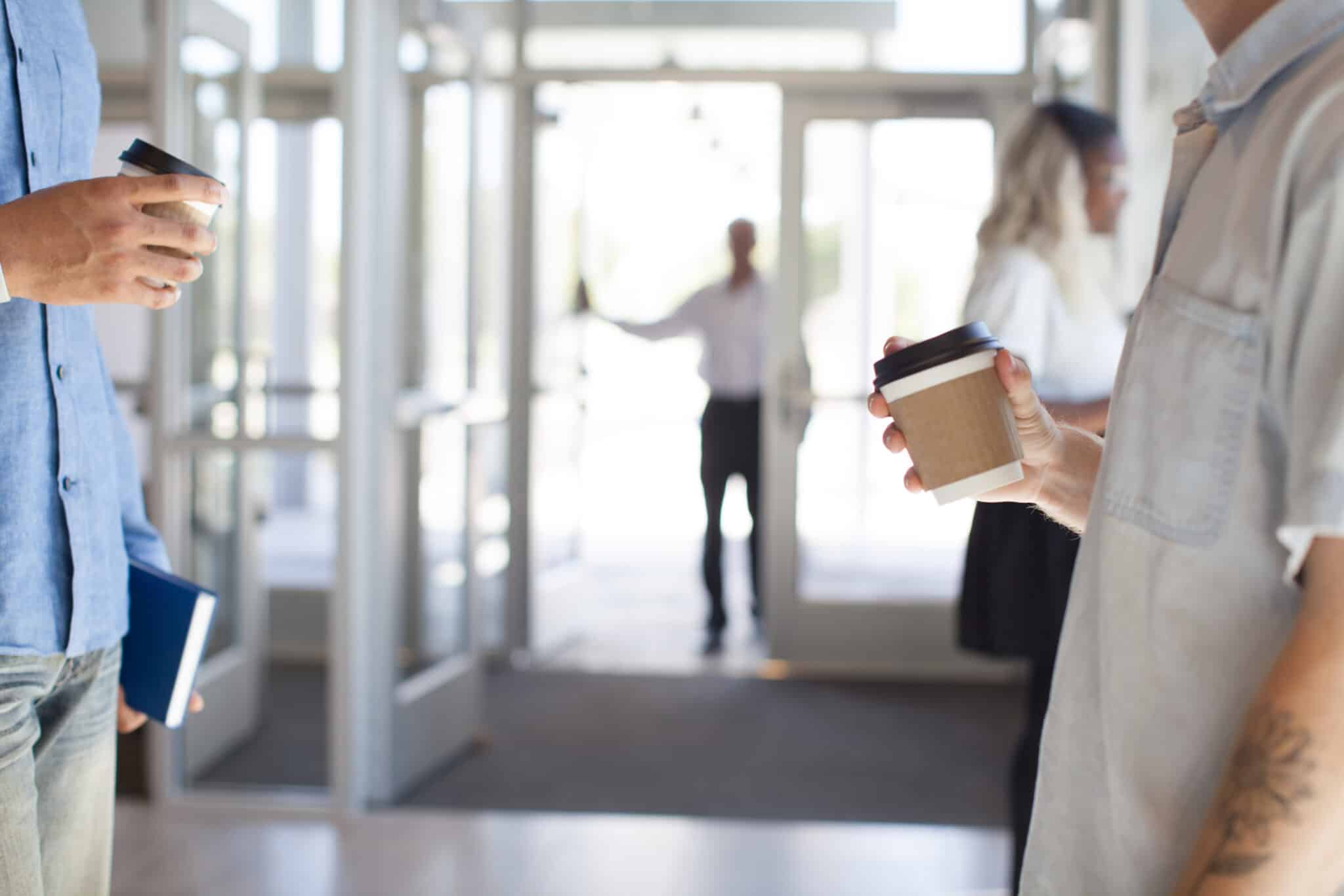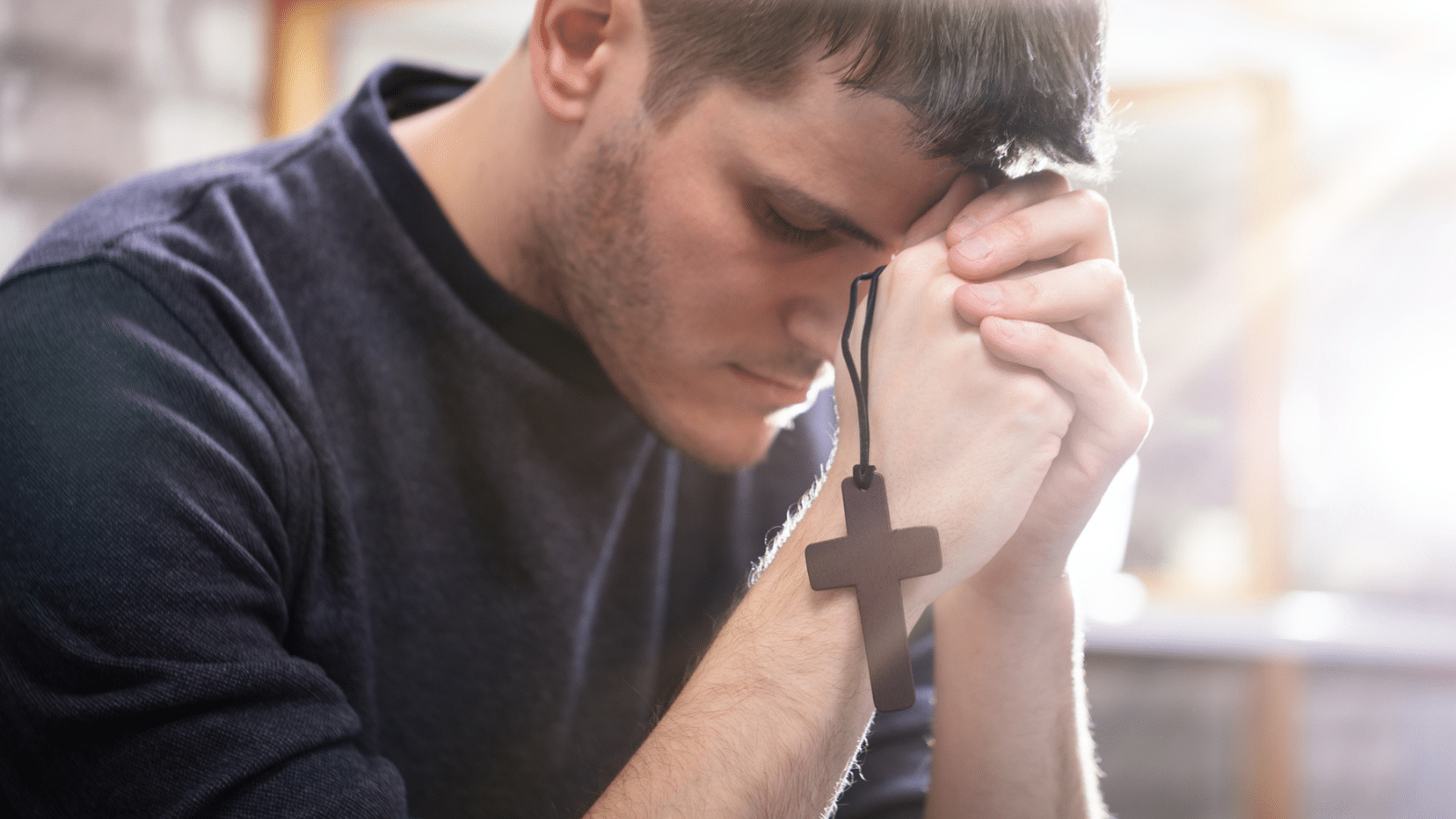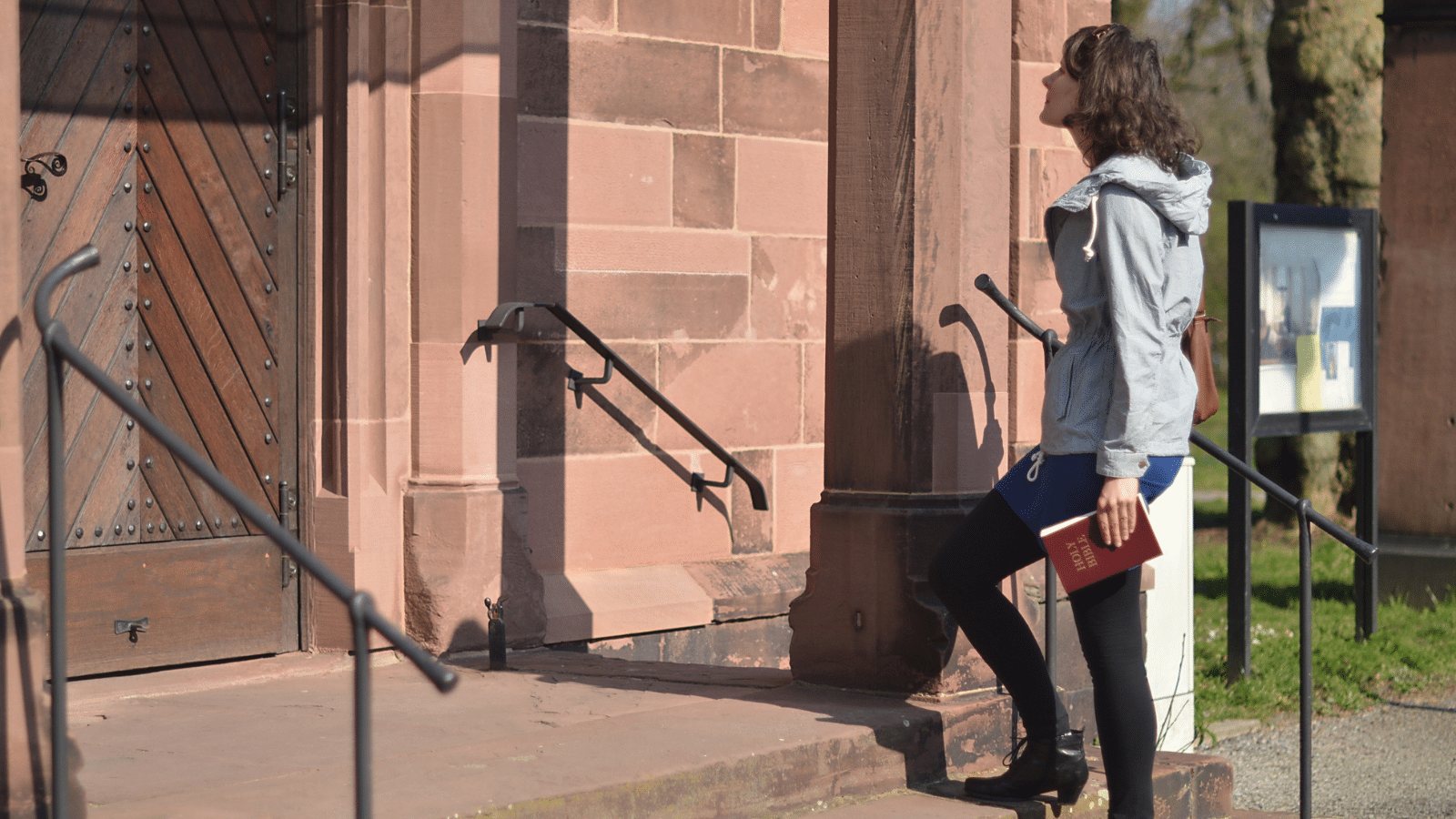It’s no secret that Christians are leaving the Church in droves.
Multiple studies have been published over the years demonstrating that numbers are dropping, and it’s common to see people lamenting the “good old days,” when people tended to be more religious than they are now.
A new study released by PRRI finally sheds some additional light on the subject, sharing not only which major faith traditions are losing members the fastest, but also, where these former members are going.
The Majority of Americans (67%) Still Identify as Christian

First, it’s interesting to note that the PRRI study found that the majority of Americans (67%) still identify as Christian.
While this number has dropped significantly over the past few decades, Christianity is still the most popular religion in American by a wide margin. No other religion even comes close.
By comparison, 4% of respondents identify as Atheist, 5% as Agnostic, 2% as Jewish, and 1% or less of Muslim, Buddhist, Hindu, Unitarian Universalist, or another non-Christian religion.
A full 17% of respondents selected the option, “nothing in particular.”
What is Religious Churning?

For this report, PRRI wanted to look at the rate of religious churning, or the number of Americans who report that “they were previously a follower or practitioner of a different religious tradition or denomination than the one they belong to now.”
This type of religious churning is very common in the United States; about one in four Americans reported having changed religions or denominations over their lifetime.
“While many Americans identify with the religion in which they were raised, others choose different religious paths as adults for a variety of reasons, including marriage into a new faith tradition, relocation to a new area, or a change in theological views.”
Americans are Leaving Churches Faster than They’re Joining Them

While some of this religious churning happens as committed church-goers move fluidly from one denomination to another, this isn’t always the case.
It’s far more common for people to walk away from their childhood religion (or any religion) altogether than to suddenly start believing as adults.
Nearly 19% of Americans reported giving up their childhood religious identity to become religiously unaffiliated (Atheist, Agnostic, or Nothing in Particular) as adults. By comparison, only 3% of Americans who grew up religiously unaffiliated later joined a religion.
Instead, of 10% of Americans raised without religion, two-thirds stayed this way as adults.
This echos the findings Dr. George Barna shares in his recent book, Raising Spiritual Champions. If you want your children to grow up to be religious, it’s important to teach them the faith from a young age.
Catholic and Mainline/Nonevangelical Protestant Churches are Seeing Major Losses

While the number of Americans who identify as Christian is shrinking, this loss isn’t happening evenly across denominations.
“In 2016, Protestants of color and non-Christian religious groups remained fairly stable in terms of those who entered or left.
However, white Protestants and Catholics experienced declines, with Catholics suffering the largest decline among major religious groups.”
According to the study, roughly 21% of Americans identify as Catholic compared to the 31.2% who reported growing up in a Catholic household, for a total loss of 10.3% of Catholics — the biggest loss of any denomination.
White mainline/nonevangelical churches suffered the next highest, with a net loss of 4.5%.
By comparison, only 2.2% of white evangelical Protestants and 0.6% of black Protestant church members left their denominations.
Where are (Most) People Going? Another Church.

While these figures may seem startling, there is good news.
The majority of Americans leaving a particular church or denomination aren’t leaving Christianity altogether. They’ve simply switched to a different church.
PRRI defines the “religiously unaffiliated” to include anyone who self-identifies as Atheist, Agnostic, or Nothing in Particular.
While this group did increase five percentage points (from 21% of Americans to 26% of Americans over the last 10 years), this increase is not enough to account for the 25% of Americans who report religious churn during their lifetime.
Meet the Religiously Unaffiliated — A Diverse Group

The fastest growing category in the study, by far, the religiously unaffiliated are a diverse group.
“Compared with all Americans, the unaffiliated are notably more likely to identify as Democrats (35% vs. 29%) and independents (38% vs. 30%), and substantially less likely to identify as Republicans (12% vs. 29%),” the study found.
However, the group is equally divided between men and women, there are no meaningful educational differences between unaffiliated Americans and the general population, and their racial and ethnic backgrounds mimic the overall breakdown of all Americans.
Content to Stay Unaffiliated

While some Americans cannot imagine leaving the religious tradition and community they grew up in, for the vast majority of religiously unaffiliated Americans, this isn’t a problem.
Only 9% of religiously unaffiliated Americans agreed that the statement “I am looking for a religion that would be right for me” describes them very or somewhat well.
For the other 91% who selected Atheist, Agnostic, or Nothing in Particular, these labels suit them just fine.
For Many, Religion Isn’t that Important Anymore

Not surprisingly, the same PRRI study also found a notable decline in people’s perception of the importance of religion.
Only 53% of Americans reported that religion is the most important or one of the most important things in their lives. This figure is significantly lower than it was in 2013, when a full 72% reported feeling this way.
By contrast, 45% of Americans say that religion is not as important or not important at all — a number nearly double what it was a decade ago (27%).
Here’s Why People are Leaving Their Churches

The PRRI study didn’t merely look at which churches were experiencing growth or loss. It also examined the specific reasons why people are leaving their church in favor of another one (or no church at all).
According to the report:
- 67% stopped believing the church’s teachings.
- 47% disagreed with the religion’s negative religious teachings about or treatment of gay and lesbian people.
- 41% reported that their families were never that religious growing up.
- 32% left because of clergy abuse scandals.
- 31% felt the church or religion was bad for their mental health.
- 20% reported that the church or congregation became too focused on politics.
Here’s Why People are Staying

Among those who choose to stay in their same religious, denomination, or church, their regular church attendance isn’t only a matter of habit.
A full 90% of religious Americans reported staying report that it helps them feel closer to God.
Additional reasons include the benefits of experiencing religion within a community (79%) and the importance of instilling values in their children (79%).
For some, the need to fulfill a duty (68%) or uphold a family tradition (68%) play a significant role as well.
From Pulpit to Platform: Meet 10 Massive Megachurches that Inspire Millions

Have you ever wondered what it would be like to worship inside one of the country’s largest megachurches?
Whether you’re looking for sermons to convict and inspire, worship music to usher you into God’s presence, opportunities to make a difference in your local community or programs for the whole family to get connected in the community, these churches have it all.
With charismatic preachers, talented worship teams, and friendly staff, it’s not difficult to see how these churches grew to the impressive size they are today.
From Pulpit to Platform: Meet 10 Massive Megachurches that Inspire Millions
6 Facts From the Bible That Have Actually Been Proven

While it may be tempting to dismiss these hard-to-believe miracles as mere fairy tales, there are many other details from Scripture that have been proven historically accurate. Here are 6 facts from the Bible that have some degree of historical or archaeological support.
6 Facts From the Bible That Have Actually Been Proven
Brittany Ann is an ECPA bestselling author and founder of Equipping Godly Women and Monetize My Ministry. She’s also a Christian speaker, podcaster, and conference host. Her work has been featured on numerous TV, radio, and online ministries, including CBN, MSN, Christianity Today, Evangelical Alliance, Patheos, Crosswalk, and more.

